QuestionHi Marcus,
I have a 7 month old felmale Husky. She is 20% wolf and 80% Siberian. She is really a wonderfull dog. 2 months ago we adopted a 1 year old male siberian husky.
They are getting along great but there are a few questions from my side:
Seeing as we reside in South Africa, our dog food are quite different from yours. They are currently on Science Diet and they are also fed "Husky" canned dog food once a day. I went through your previous answers and saw that a runny stomach might be the result of eating too much.
My female husky had diarrhea a month ago (so bad that she ended up in hospital).
I just want to know what the best thing will be to feed my babies.
We walk them every day and have a big back yard so they get allot of exercise daily, but how much exercise exactly do they need?
Lastly, when wil the best time be to fix the female?
AnswerWell, I'll answer these in reverse order:
1) Spaying the female: Talk to your vet, but most vets recommend it around 6 months of age, some like to wait until a year. Personally, I think anytime in the middle is good. I have seen no benefit to waiting for the dog to go through estrus once before spaying, and actually, I think it might be better to do it before the dog goes into heat.
2) Daily exercise requirements vary based on climate and dog. However, Sibes should be allowed plenty of play time and need mental stimulation as well. Good obedience training and running are great for that. I recommend that if you can spend a few hours a day (2-3) playing with your dog, running with it, or working obedience, the dog should be doing alright overall. The more the better, and the dogs generally don't mind at all.
3) Loose stools can be a sign of over-feeding. However, chronic diarrhea that results in dehydration and a hospital stay is usually not just from a little bit of gluttony. Generally, there are digestive issues at that point (bacteria or parasites, or a virus). I would think that your vet checked that out, but make sure that the dog has been checked for everything from worms to giardia.
As for feeding, I recommend a kibble that is high in protein (around 30% in a crude analysis) and high in fat (around 20%). If you can find higher, that's great. At the same time, I've had people would had a food with 32/17 on protein/fat - close enough. If your dogs like it, you are doing alright. The next thing to do is supplement the diet a little with some extra protein. Raw meat actually can calm Siberian digestive systems, but cooked often works as well.
As for amounts to feed, my dogs receive 1 cup of food per day (standard US measuring cup which is 8 oz, 240ml) divided into two feedings. They then get some sort of supplement - meat of some sort, some cheese or something similar. Usually the amount of meat is maybe a tablespoon or so.
The only other recommendation I have on kibble is to try to find kibbles that have the majority of main ingredients be meat, poultry or fish, and oils. Grains (wheat, corn, etc.) are rather indigestible by canines, and are simply fillers. It's ok to have them in the food, but they shouldn't be the primary ingredients. Generally, if you see the top four out of five ingredients to be non-grain (meats of some sort) you are doing alright.
Hope that helps and good luck. Let me know if you need anything else.

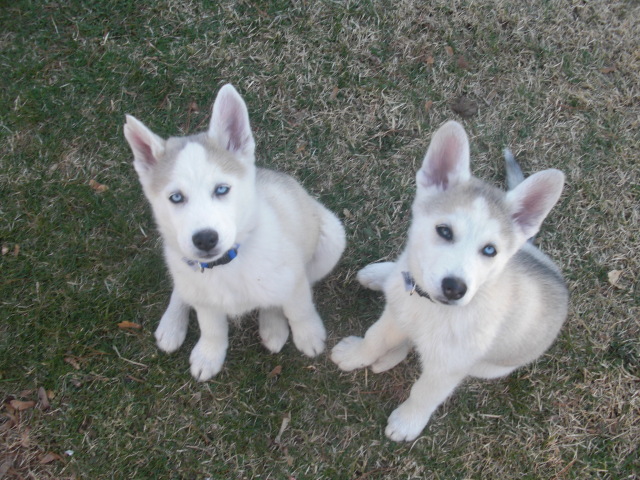 2 12 week old Husky brothers play/fighting
QuestionJasper & Sigmund
QUESTION: Two weeks
2 12 week old Husky brothers play/fighting
QuestionJasper & Sigmund
QUESTION: Two weeks
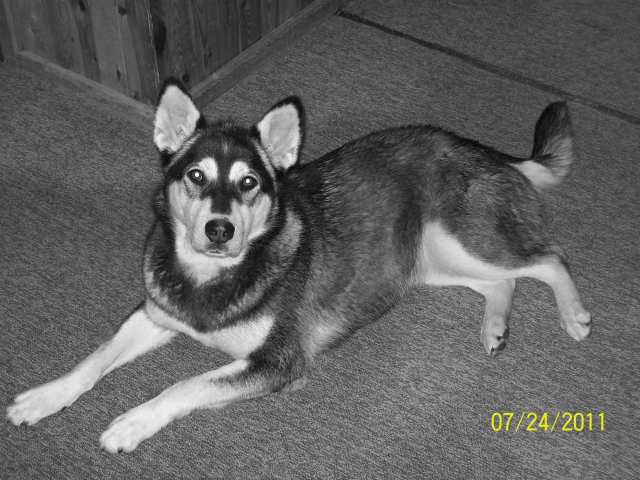 Pregnancy
Question
Diamond in black and w
Is it possible f
Pregnancy
Question
Diamond in black and w
Is it possible f
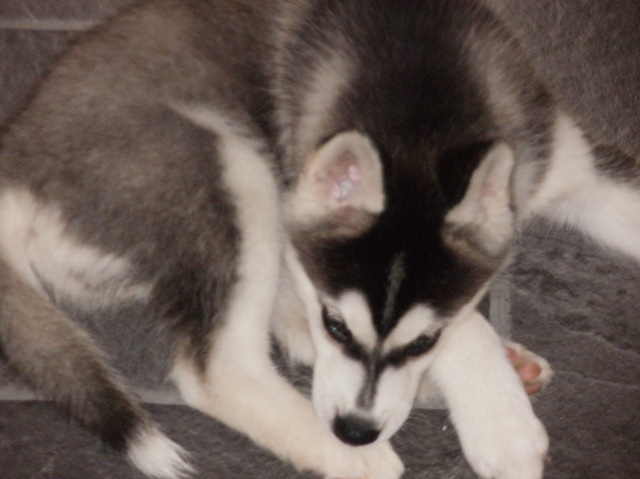 Bath Time
Question
Keiko
Hi we have a 14 week old Siberian named
Bath Time
Question
Keiko
Hi we have a 14 week old Siberian named
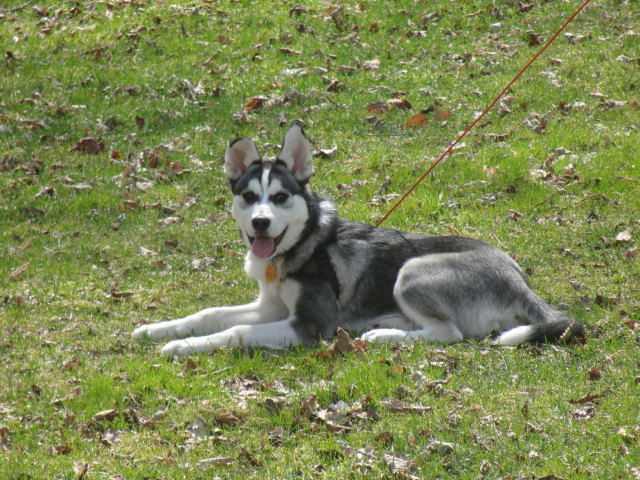 My 4 mo. old puppy
Question
Arkkan 4mo.old
I recently brought home my Sibe
My 4 mo. old puppy
Question
Arkkan 4mo.old
I recently brought home my Sibe
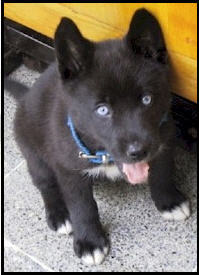 Crate Training a 7wk old Husky mix pup
QuestionHusky look-alike from
QUESTION: Weve re
Crate Training a 7wk old Husky mix pup
QuestionHusky look-alike from
QUESTION: Weve re